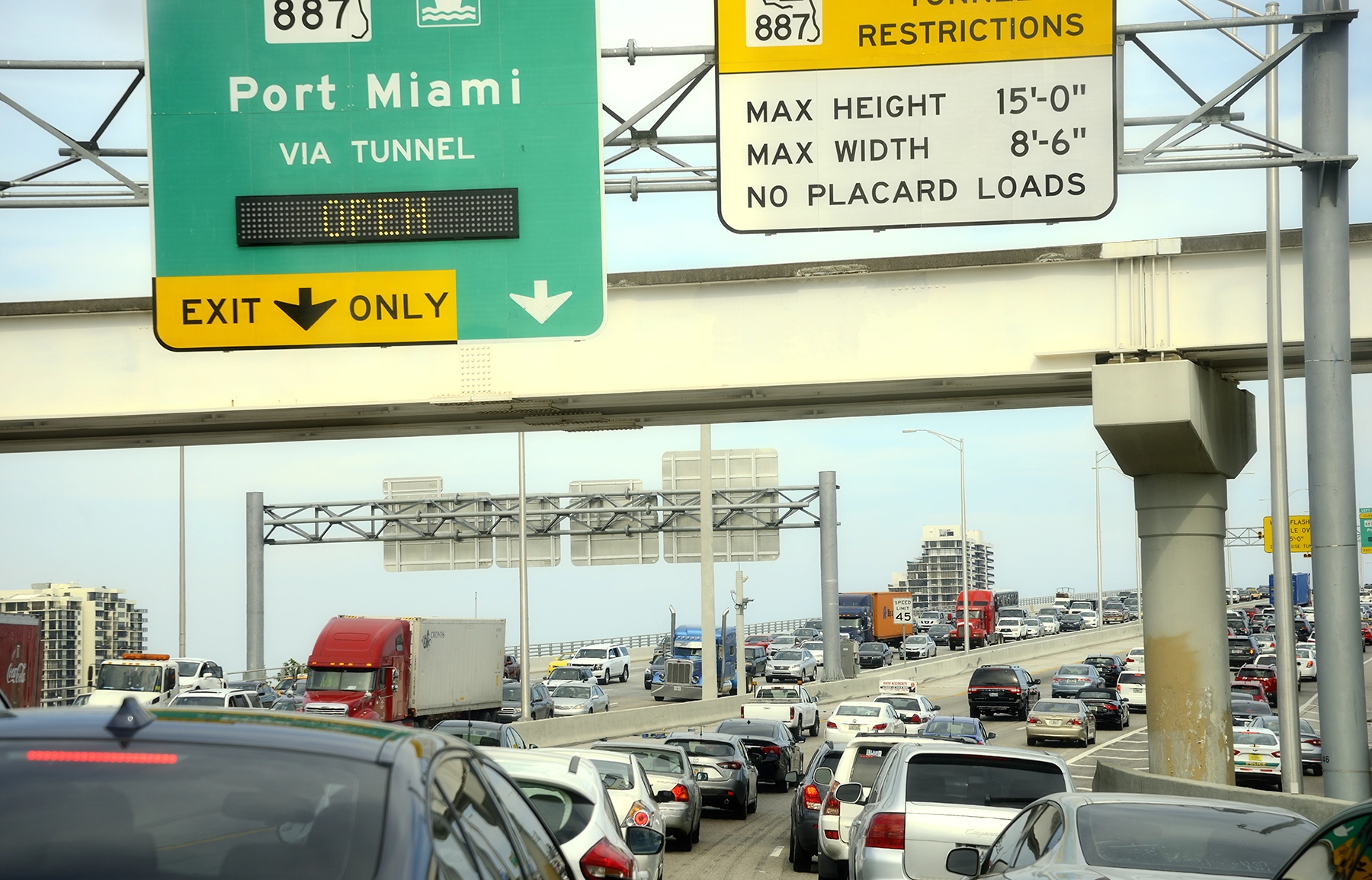Ask the Expert: How Can I Make My Commute Less Stressful?

Do you feel like you spend too much time in your car?
If you live and work in Miami, chances are that you deal with a daily dose of traffic. You’re not alone. According to the U.S. Census Bureau, more than 150 million people commute to work by car. On a difficult day, it may feel like they are all right there on the road with you.
Driving may be unavoidable, but Anthony Castro, Psy.D., Ph.D., believes we can navigate the tension surrounding it. Dr. Castro is a licensed clinical psychologist with the University of Miami Health System. A Miami commuter himself, Dr. Castro shares his perspective to help road warriors cope with commuting.
Are your patients experiencing adverse health impacts due to commuting and traffic stress?
Dr. Castro: Commuting and traffic usually make stress worse, but rarely do I see it as the only or even the main contributor. When discussing added stress, commuting usually revolves around the time it takes away from other responsibilities or the challenges of coping with other drivers’ behaviors.
Symptoms such as stress, anxiety, depression, and other negative impacts often already exist as a result of other causes; traffic is something that makes these symptoms feel worse.
What can commuters do to ease the undesirable effects of daily driving?
Dr. Castro: Things that help people cope with traffic-related stress are similar to what works for many other stresses:
1. Acceptance. Not accepting the traffic, but the fact that it exists and isn’t going away anytime soon.
2. Letting go of control. Constantly thinking of ways around it does not help. We usually become more frustrated after each unsuccessful attempt and feel worse because we are ineffectual.
3. Analyze our own driving patterns. As a daily pattern, weaving in and out of lanes to arrive (at best) one or two minutes earlier is highly likely to add more stress than it relieves.
4. Change the goal. If we are laser-focused on reaching our destination as soon as possible, stress-free living will be an uphill battle. The more we focus on arriving quickly, the more frustrated we are prone to be throughout the entire drive, especially when we recognize that it is not going to happen.
5. Give the commute a purpose. Given that it isn’t going away, if we use our commute for something useful, we suddenly stop viewing it as a waste of time. For some, this may be listening to a podcast or audiobook, rehearsing a performance, learning a language, catching up with loved ones, or some form of relaxation such as music you enjoy. Avoid listening to meditation apps, as they can induce drowsiness. Breathing exercises, however, will keep you alert while relieving tension.
Commuting with kids? Use the time to pose questions that spark conversations, quiz them on this week’s spelling test, and sing or play verbal games.
6. The fastest route may not be the best route. Take a more scenic or pleasant way home rather than the fastest route if possible. These drives are usually more enjoyable and stress-relieving.
I try to integrate all of these in one way or another, but I apply suggestions four through six more consciously to Miami traffic, which can test anyone’s patience.
How can drivers avoid spiraling into road rage?
Dr. Castro: Thankfully, most drivers don’t spiral into road rage.
Most see road rage as an extremely unnecessary reaction. That is not to say we don’t think about it, but ultimately, acting it out is not too common. If we find ourselves spiraling, it may be a sign that we have greater difficulties in managing our frustration beyond traffic-related ones. Stress and frustration are normal; road rage is not. Of course, we are all susceptible to overreacting on any given day, but it is not a usual pattern and is rarely caused by the traffic alone.
Speaking of anger, avoid getting “hangry.” Nothing frays the nerves like traffic delays combined with an empty stomach. Keep some non-perishable snacks and water in your car.
To reduce the stress that comes from not having enough time to manage your responsibilities:
- Try to ease the transition between work and home.
- Work out before you get behind the wheel – first thing in the morning or before you head home.
- Automate chores when and where you can.
- Let a crockpot do the cooking so a hot meal awaits you at the end of the day.
- Put lawn sprinklers and robot vacuums on timers.
- Use a grocery delivery service.
A long commute may not be your choice, but you can choose to view the journey in ways that don’t add more stress to your day.
Q&A compiled by Nancy Moreland, a contributing writer for UHealth Collective.
Tags: behavioral health, Dr. Anthony Castro, driving in Miami, driving stress
